Description
ABSTRACT
A Legal Perspective on Shareholders Associations in Nigeria and the Quest for Corporate Control
Dr. Kathleen Okafor*
Many transnational and national corporations wield enormous powers due to their hug resources and influence. Companies like Walmart, Exxon Mobil, Toyota, Dangote, MTN, Guaranty Trust Bank, First Bank of Nigeria, all compete with nation states in terms of their wealth and power. The dynamics and diversities in business, as well as the respective demands of shareholders themselves continue to task the ingenuity of the law in terms of devolution of power in corporate governance. As such, conflict over the exercise of corporate powers remains inevitable particularly between the capital providers and operating officers. This paper seeks to consider the legal framework and internal control mechanisms already existing for shareholders’ involvement in corporate governance. Particularly, it posits that apart from regulatory provisions against directors’ breaches and entrenched managerial exclusivism, shareholders are not powerless.
INTRODUCTION
Company law makes it abundantly clear that only shareholders of companies are the members who have the right to attend the general meeting to speak and vote on resolutions of the company. Thus, the Companies and Allied Matters Act2 states as follows:
S. 79-The subscribers of the memorandum of a company shall be deemed to have agreed to become members of the company… Every other person who agrees in writing to become a member of a company and whose name is entered in its register of members shall be a member of the company…
S. 81- Every member shall… have a right to attend any general meetings, of the company and to speak and vote on any resolution…
The practical effect of these statutory provisions is that whatever position directors and the other employees occupy or whatever power they wield, they are not members of the company unless they own shares. The status and rights of shareholders are, therefore, distinct from those of the directors or employees. Judicial pronouncement on this differentiation was aptly made by G. A. Oguntade JSC viz:
The question of share ownership of an employee in a company for which he works generally has nothing to do with the terms of the employee’s employment under the company.3
On one hand, the directors are given the power to manage the company’s affairs4 albeit with nondescript and pedestrian recognition of their interests and rights as employees.
* Ph.D., BL. Head of Department, Property & Commercial Law, Baze University, Abuja
- The Sales Revenue of Walmart in 2015 was $491 billion, with 2.2 million employees. Exxon Mobil sales was $16.2 billion in 2015 with 75,000 employees. The national budget of Nigeria in 2015 was N4.4 trillion ($10 billion)
- CAP C20, Laws of the Federation of Nigeria, 2004 (Hereinafter CAMA)
- Osisanya v Afribank Nigeria Plc. (2007) ALL FWLR (Pt 360) 1480
- s 63(3), CAMA

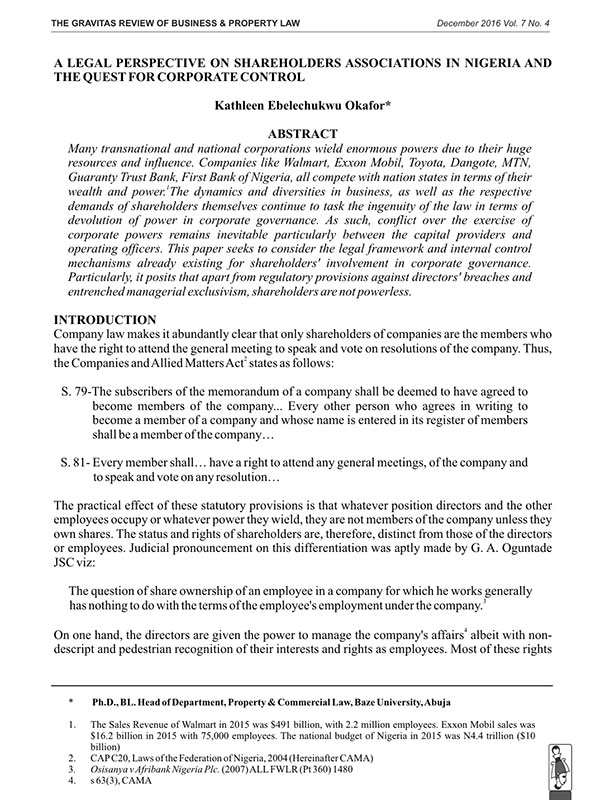
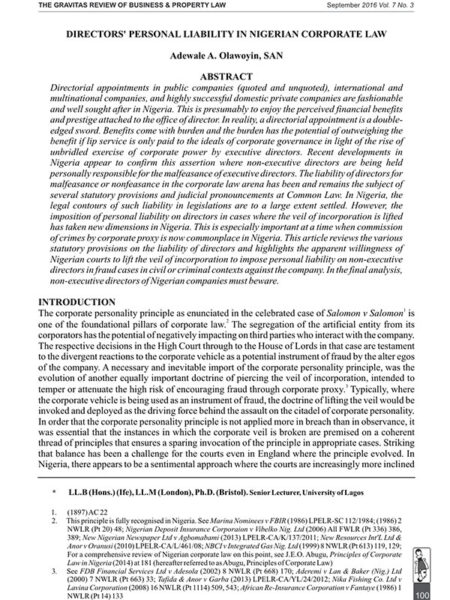
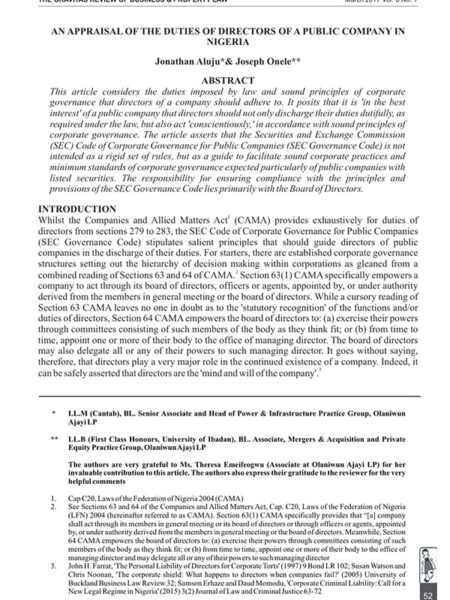
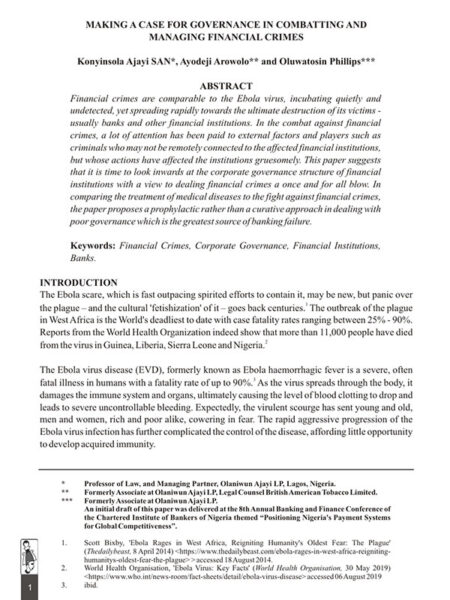
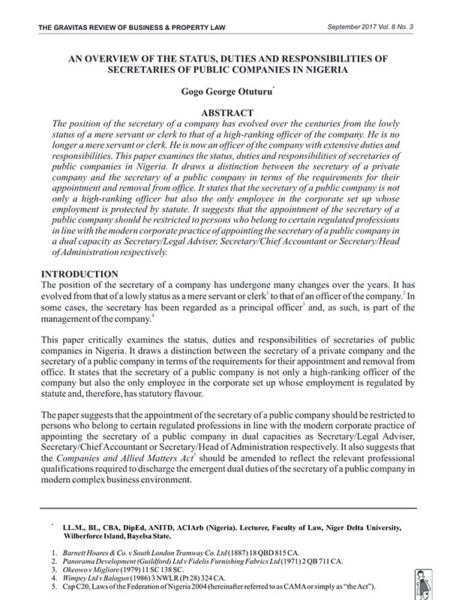


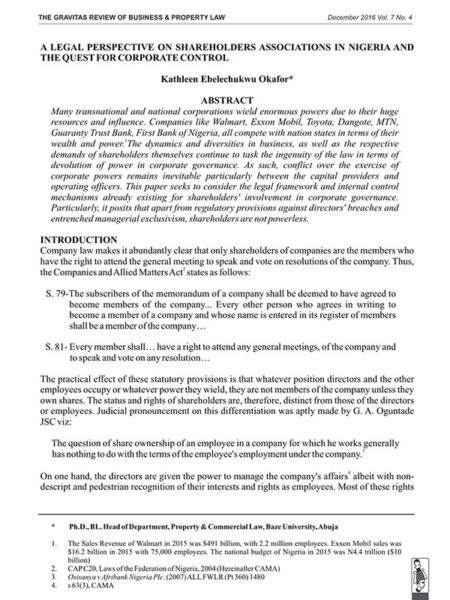
Reviews
There are no reviews yet.